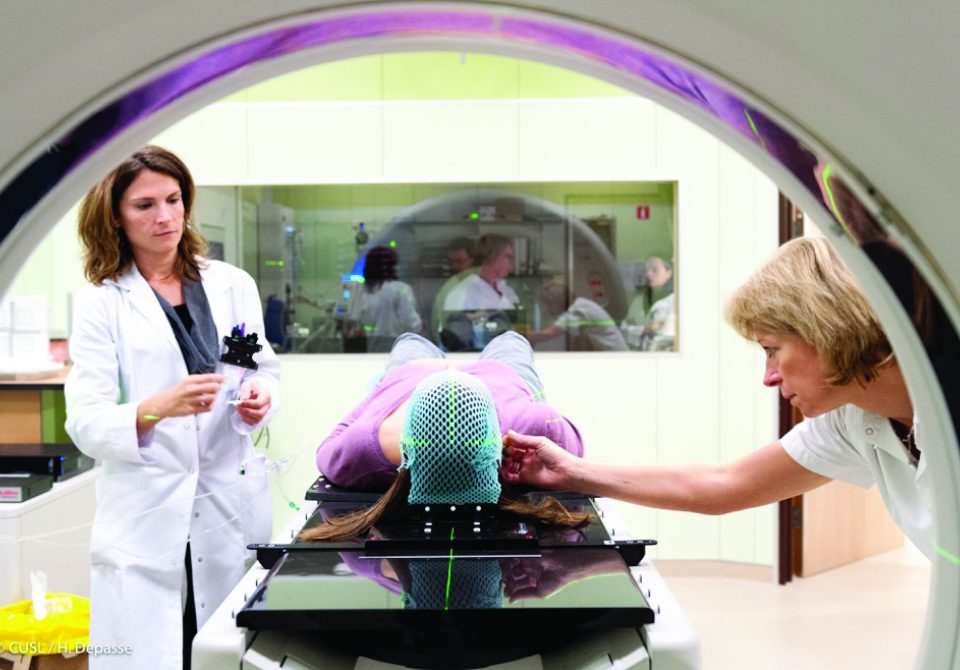
In brief
A profession focused on patient management, treatment and follow-up care requiring technological proficiency and interpersonal skills.
The strengths of the Advanced Master in Radiotherapy
- This programme is offered by six Hautes Ecoles. Each provides specific expertise in the fields of technology and patient care.
- The programme was designed in partnership with the radiotherapy departments of Wallonia and Brussels.
- The programme entitles students to paid educational leave.
- Flexible timetable arrangements allow students to follow the programme and continue to work.
Good to know
- The programme is open to holders of a Bachelor in Medical Imaging Technologist and Nursing as radiotherapy requires skills in both technology and patient care.
- Access to the programme is dependent on having successfully completed the compulsory module in radiation protection specified in the Royal Decree of dans 13 February 2020 on medical exposure and exposure to for the purposes of non-medical imaging using radiological equipment. This module can be obtained during the programme.
A career in radiotherapy
The Interdisciplinary Advanced Bachelor in Radiotherapy allows professionals to acquire the highly technical specific knowledge and skills required to work in radiotherapy, as well as the essential human and interpersonal skills.
The objective is to ensure that patients receive:
- Optimal management;
- Quality care;
- Maximum safety;
- Highly trained personnel.
The Programme of Study
Programme1 year - 60 credits
- 30 credits address physical, technical and technological aspects of radiotherapy
- 30 credits address clinical aspects: care pathways, patient treatment and follow-up
The programme contains an equal volume of theory and practice.
In the theory component, following a review of the basic specific concepts for both technologists and nurses, the following topics are addressed or studied in further detail:
- Oncology
- Radiological physics, Medical imaging
- The techniques and technologies of radiotherapy
- Radiobiology, RadioAnatomy, Radiation Protection
- Radiation dosimetry
- Clinical (care) pathways
- Delivering treatment and monitoring
- Management, legislation
- Insurance and quality control
The practical component involves practical work focusing on planning and segmentation using radiotherapy equipment and a range of placements in radiology departments in Belgium and abroad. This practical programme is supplemented by visits, seminars, simulation activities, participation in conferences and a final-year dissertation in which students demonstrate their grasp of the subject.